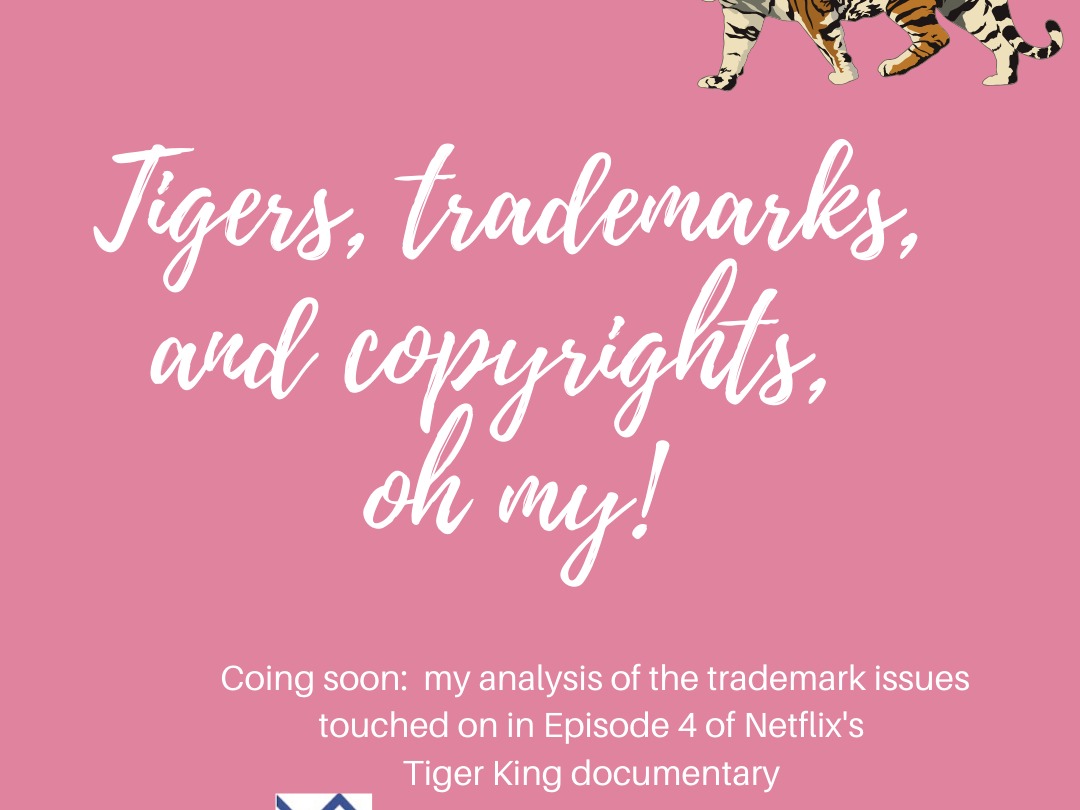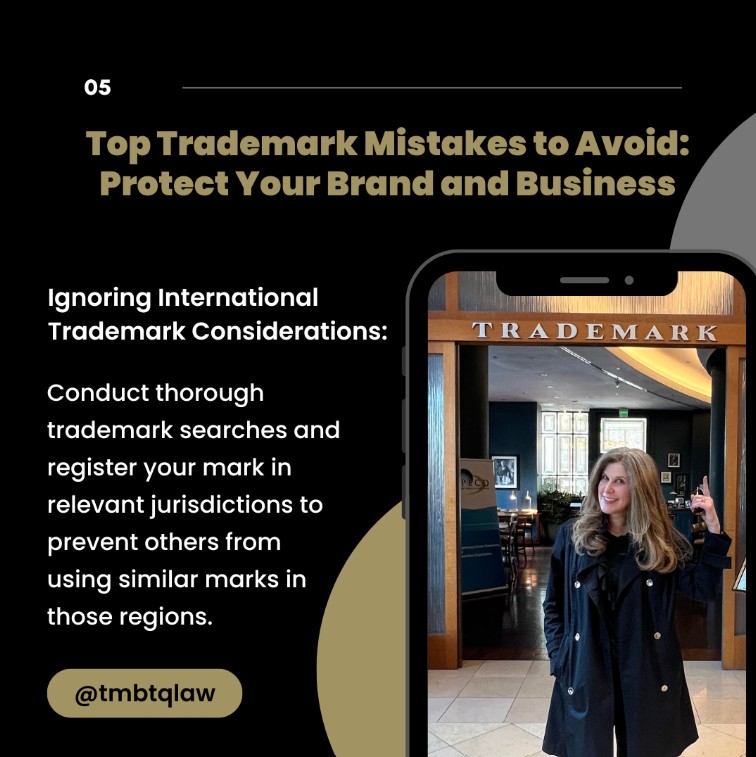I finally binge watched Netflix’s Tiger King documentary over the weekend. The show packs so many colorful characters and issues into six hours. We see the polyamorous, gun-loving lifestyle of people involved with the “exotic animal” industry. We question whether Carol Baskin truly runs an animal sanctuary or just a for-profit zoo. We puzzle over Ms. Baskin’s second husband “mysteriously vanishing” just as he was about to divorce her, and the strangely written power of attorney specifically mentioning disappearance and disability. We learn of intricate twists and turns and shifting alliances and betrayals in an alleged murder plot. Most interesting to me as an intellectual property attorney, of course, was episode four, focusing on the trademark and copyright dispute that began Joe Exotic’s unraveling.
We learn in episode four that Carol Baskin’s Big Cat Rescue has sued Joseph Allen Maldonado-Passage, aka Joe Exotic, and his company for trademark and copyright infringement. It seems from the episode that both Ms. Baskin and Joe Exotic are confused and misguided on intellectual property basics. An image of Ms. Baskin’s Big Cat Rescue logo is shown with a © in the upper right (usually, the place where a ® designating trademark registration goes) and we hear about “trademark and copyright infringement.” I checked the USPTO records and court records to learn more about exactly what happened. Here’s what I can tell you, and where each of the parties went wrong:
Ms. Baskin’s Big Cat Rescue Corp. (note it’s a Florida corporation, NOT a non-profit organization) has two trademarks registered with the U.S Patent and Trademark Office: BIG CAT RESCUE, Reg. No. 4469155, and the stylized version, Reg. No. 2918642, both in connection with “charitable fund raising services” in trademark class 36; “animal rescue services, namely, removing animals from harm and transporting them to shelters” in class 39; and “entertainment services, namely, animal exhibitions; educational services, namely, providing instruction in animal conservation and care” in class 41.
The U.S. Patent and Trademark Office does not like to give one party the exclusive right to use a term that is “merely descriptive” of the subject goods and services. BIG CAT RESCUE as a mark to describe a company involved with animal rescue and entertainment is…guess what… descriptive! Accordingly, Baskin received initial rejections of both trademark applications on the basis that the marks described the goods and services listed in the applications. For the design mark, she had to disclaim the exclusive right to use the words BIG CAT RESCUE, and the only way she was able to get a registration on the word mark was under the “acquired distinctiveness” exception which allows registrations after a descriptive mark has been used continuously for at least five years and the applicant can show significant marketing expenditures to tie the mark to its origin. In her case, Baskin was able to submit sufficient evidence to show that BIG CAT RESCUE had indeed achieved “acquired distinctiveness.”
Because of the disclaimer and relatively weak nature of Baskin’s marks, it would normally have been difficult for her to show that another company doing business under a similar name was actually infringing on her trademark.
If Joe had retained a lawyer familiar with trademark strategy when his rivalry with Ms. Baskin first began, he might have been able to cancel her Federal trademark registration on the basis of fraud (claiming to do charitable fund raising services but actually just profiting from keeping animals in cages).
If she had a stronger mark to begin with (like C.B. Rescue or… just about anything else that did not actually describe the services in the company name itself), Baskin would not have had to spend hundreds of thousands of dollars in attorney’s fees to prove that Joe Exotic infringed on her mark. But, the circumstances of infringement were so egregious, as I’ll discuss below, that she won anyway.
We learn that Joe Exotic formed a company called BIG CAT RESCUE ENTERTAINMENT GROUP, INC., although he was obviously well aware that his nemesis, Carol Baskin, ran an organization called Big Cat Rescue. Joe boasted in social media that the purpose of forming Big Cat Rescue Entertainment, and performing a traveling tiger-petting show at malls around the country, was specifically to ruin the goodwill of Big Cat Rescue and tamper with search engine results.
Trademark infringement matters examine whether a reasonable consumer, looking at two marks side by side, would be confused as to origin. In other words, when you see an advertisement for Big Cat Rescue Entertainment, will you believe that the event is sponsored by or affiliated with Big Cat Rescue?
Trademark infringement cases look to a variety of other factors listed in the famous case In re E. I. du Pont de Nemours & Co., 476 F.2d 1357 (C.C.P.A. 1973) famously set out thirteen factors to be considered in a likelihood of confusion analysis. The most important factors are almost always the similarity or dissimilarity of the marks in their entireties as to appearance, sound, connotation and commercial impression, and the similarity or dissimilarity and nature of the goods or services as described in an application or registration or in connection with which a prior mark is in use. The audiences and methods of marketing, as well as a number of other factors, are also considered.
Here, Joe Exotic admitted that he wanted to decimate Big Cat Rescue’s google rankings position, and drag the name of that organization into the mud, to make it look like they weren’t a rescue organization after all. Had he consulted counsel at any point in his deliberations, he might have learned about trademark descriptiveness and been advised not to be so overt about his intentions.
Joe Exotic’s company also prominently used an image owed by Big Cat Rescue in its marketing materials. This was the basis for the copyright claim which made up a much smaller portion ($25,000) of the nearly $1,000,000 damages Big Cat Rescue was awarded.
The final decision in the trademark infringement and copyright infringement lawsuit made Joe Exotic furious. After the judge’s order came down, Joe Exotic vowed to seek revenge on Carol Baskin, and scrambled to form a partnership with someone who he perceived as having resources to help him satisfy both the judgment and his own vendetta.




